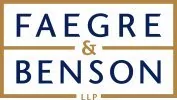For months the U.S. Food and Drug Administration (FDA) has been hinting that it is planning to crack down on corporate executives for their roles in corporate wrongdoing. On November 8, 2010, former GlaxoSmithKline vice-president and associate general counsel Lauren Stevens was charged with obstruction and making false statements during a 2002 FDA investigation into off-label promotion of the GSK drug Wellbutrin, a move that is unprecedented and has shocked the pharmaceutical and legal industries.
Although the indictment does not name GSK or Wellbutrin by name, the company confirmed that Stevens worked in its legal department and that the drug at issue was Wellbutrin SR. Wellbutrin is approved by FDA only for the treatment of depression in adults, but in 2002, FDA was investigating claims that GSK promoted the use of Wellbutrin for weight loss as well. The focus of the indictment and ensuing media coverage is on Stevens's role in allegedly withholding some responsive documents from FDA while simultaneously representing that she had provided FDA with all available documents.
According to the indictment, FDA informed Stevens in an October 2002 telephone conference that it expected GSK to obtain and provide to FDA the materials used at GSK-sponsored programs, "even if such materials and documents were not created by or under the custody or control of [GSK]." Stevens agreed by letter to make an effort to obtain and provide such documents to FDA.
Stevens sent a letter to several hundred of the speakers who had given "promotional talks" about Wellbutrin, including two doctors who had spoken at nearly 500 events each in the 2001-2001 timeframe, requesting the speakers send the company a copy of the slides and materials used during the lectures. After receiving and reviewing the doctors' promotional materials, Stevens sent letters to 28 speakers, stating that their promotional materials improperly contained information about off-label usage of Wellbutrin.
Stevens reportedly requested other lawyers involved to summarize in a memo the pros and cons of providing the speakers' materials and slides to FDA. One of the disadvantages listed was that the physician presentations provide "incriminating evidence about potential off-label promotion" of Wellbutrin. The indictment states that Stevens chose not to provide the physician presentations to FDA and instead represented to FDA that the document production was complete.
Stevens also is charged with misrepresenting facts about GSK's advisory boards and whether GSK gave gifts to attendees of its speaker programs.
Over the company's months-long response to the FDA inquiry, Stevens also represented in a series of letters to FDA that GSK "has not developed, devised, established, or maintained any program or activity to promote, either directly or indirectly, the use of [Wellbutrin] to achieve weight loss or treat obesity." FDA learned of the physicians' presentations from a GSK employee in November 2003. Stevens responded by letter to FDA that same November, stating that there were "isolated deficiencies" in GSK's activities but the "objective evidence" demonstrates GSK did not develop, maintain, or encourage programs promoting off-label usage.
The November 8 indictment charges Stevens with one count of obstruction, one count of falsification and concealment of documents, and four counts of making false statements to FDA. The first two charges are punishable by up to 20 years, with each count of false statements punishable by up to 5 years. GSK has not been charged with a crime.
Reason for Concern?
The prosecution is holding out the indictment as an example for industry executives and counsel. Tony West, the assistant attorney general for the civil division, stated that "[w]here the facts and law allow, the Justice Department will pursue individuals responsible for illegal conduct just as vigorously as we pursue corporations." Richard DesLauriers, Special Agent in Charge, FBI, Boston Division, said of the indictment that it "shows that we will investigate those responsible for unlawful acts done on a company's behalf. When individual employees are identified, they will be held accountable for their illegal activity."
Several media reports view the indictment as "upping the ante" for pharmaceutical company executives and lawyers. The indictment may be a reaction to the growing complaints from Congress and consumer groups that, while companies are paying large fines, the executives individually are not brought to account.
Some legal experts speculate that the indictment will have a chilling effect and cause pharmaceutical counsel to be more conservative in their advocacy. Other experts observe that the government has an uphill matter to prove intent to deceive, a requirement in obstruction cases.
Further complicating the case is Stevens's argument that she was relying on advice of outside counsel. Such a defense can turn on thorny attorney-client privilege issues, and GSK—not Stevens—has the right to waive the privilege. Generally, while a pharmaceutical company's interests often align with the employee in waiving privilege to obtain absolution of liability, sharing privileged documents can open the door to further governmental inquiries. Reportedly, GSK is cooperating with the government in the investigation.
Import for the Industry
Most publicly available information comes directly from the indictment, and the case therefore is one-sided so far. Without knowing Stevens's and the company's views of the indictment and the underlying facts, it is unclear whether the indictment actually signals a sea change in the government's approach to prosecuting executives and counsel involved in corporate wrongdoing or whether this is really a stand-alone case, stemming from a good paper trail and unknown, case-specific elements.
Regardless of whether this is the first in a long line of crackdowns, corporate counsel have cause to be concerned over their dealings with FDA and other regulatory agencies.
The content of this article is intended to provide a general guide to the subject matter. Specialist advice should be sought about your specific circumstances.


